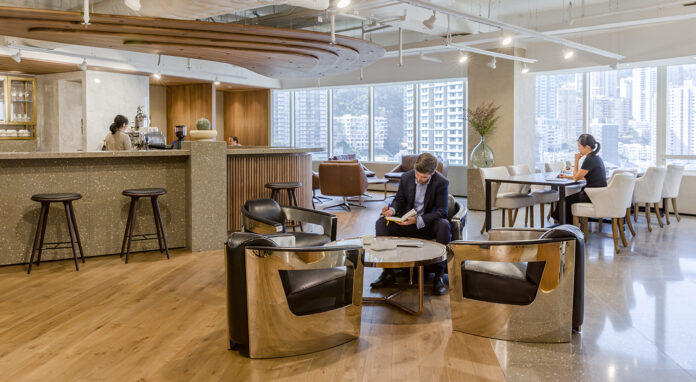The sphere of business real estate has been undergoing a transformation, a metamorphosis driven by the need for adaptability in an unpredictable economic landscape. With the ebb and flow of entrepreneurial ventures and established businesses alike seeking agility, the answer has increasingly become clear: flexible workspaces. Among the most prominent players in this space are serviced offices, which have become synonymous with the fusion of innovation, flexibility, and professional ambiance.
The past decade has demonstrated an undeniable trend. Businesses are pivoting away from the traditional model of leasing or buying large office spaces, which often come with high overheads, lengthy contract commitments, and a rigid framework that might not be conducive to growth or scaling down when needed. Instead, there’s been a gravitation towards solutions that offer scalability, minimal commitments, and premium facilities without the daunting price tag.
Flexible offices, as part of this flexible workspace revolution, have been instrumental in offering these advantages. Instead of investing significant capital into setting up an office, companies can now access state-of-the-art facilities replete with meeting rooms, receptionist services, high-speed internet, and more, all within a package that can be tailored to their needs. The beauty of it lies in its simplicity: businesses can transition seamlessly, reducing both downtime and transitional costs.
The allure of such spaces isn’t merely their plug-and-play nature. It’s also rooted in the way they foster community and collaboration. Unlike isolated office suites, flexible offices are typically bustling with a diverse set of businesses and professionals. This environment becomes a hotbed for networking, collaboration, and the cross-pollination of ideas. For many, the opportunity to engage with a vibrant community is as compelling as the office infrastructure itself.
A point that underscores the importance of flexible workspaces in today’s climate is the unpredictability that businesses face. Economic fluctuations, industry disruptions, and global events like the pandemic have emphasized the need for operational resilience. Here, flexible offices shine. They offer contractual flexibility, allowing businesses to expand or contract their space based on real-time needs. The ability to remain agile in the face of external challenges becomes a critical asset.
From a broader business real estate perspective, this shift towards flexibility reflects a deeper societal transformation. The modern workforce, especially the younger generation, values freedom, work-life balance, and the ability to work from anywhere. This sentiment has been amplified with the increasing acceptance of remote work. As a result, the need for mammoth office spaces in premium locations has decreased. Instead, businesses are finding value in maintaining smaller central offices while leveraging flexible workspaces as satellite hubs or for specific project needs.
Then there’s the matter of location. Traditional business real estate often required companies to commit to one location, making geographic expansion a lengthy and costly affair. With the proliferation of flexible workspace providers, many of which, including those offering flexible offices, have multiple locations, businesses can establish a presence in new regions with minimal friction.
It’s crucial to understand that while flexible workspaces, including serviced offices, offer myriad advantages, they might not be the ideal solution for every business. Large corporations with specific infrastructure needs, for example, might still find value in traditional real estate models. However, the trajectory is clear. The future of business real estate is being significantly influenced by the rise of flexibility.
Concluding thoughts circle back to the fundamental question: Are flexible workspaces the future of business real estate? While predicting the future with absolute certainty is a fool’s errand, current trends undoubtedly point in that direction. As businesses prioritize agility, reduced overheads, and the welfare of their employees, the shift towards flexible solutions seems not just probable, but inevitable. Serviced offices, with their blend of professionalism, flexibility, and community, will undoubtedly play a starring role in this evolving narrative.





















